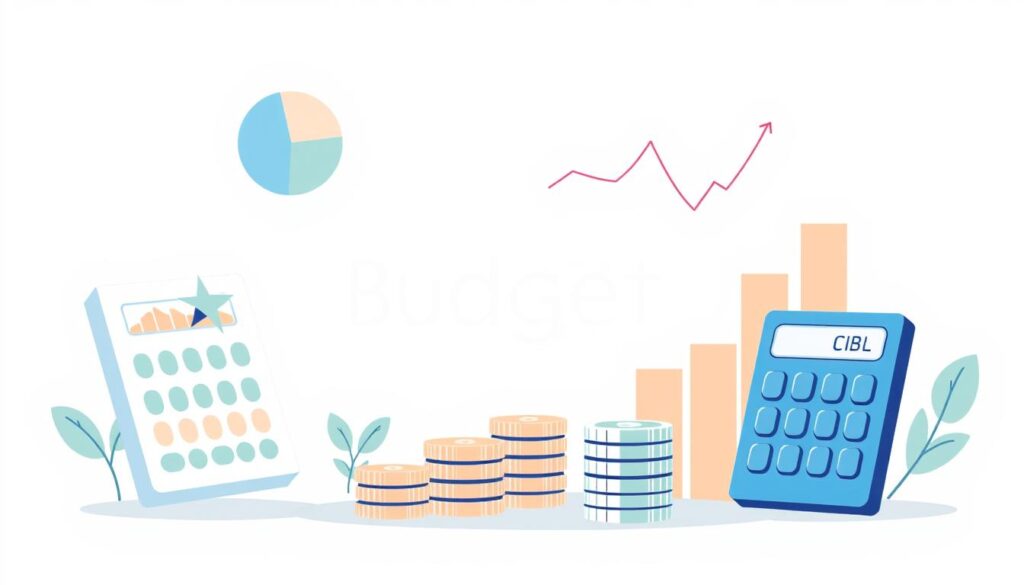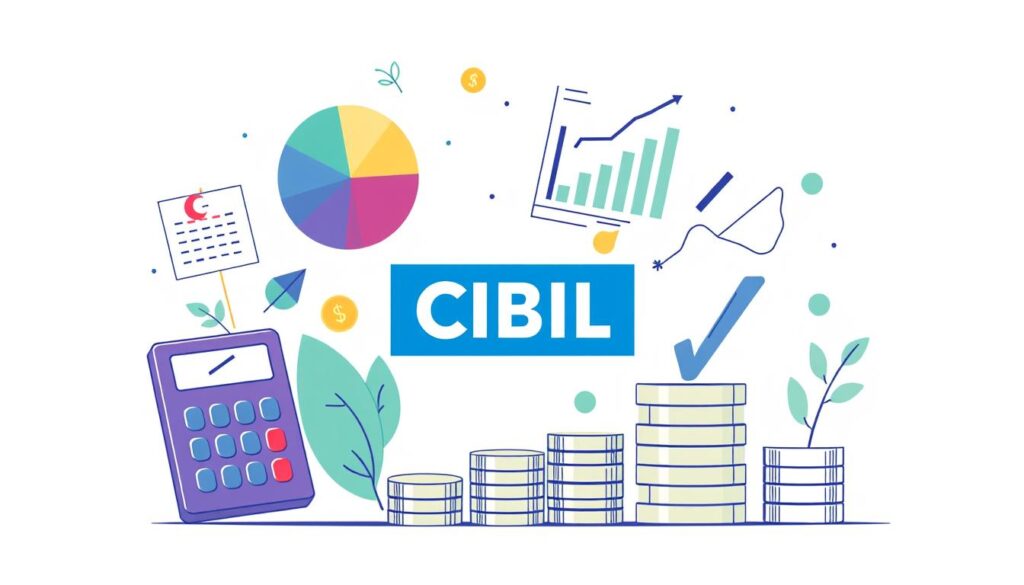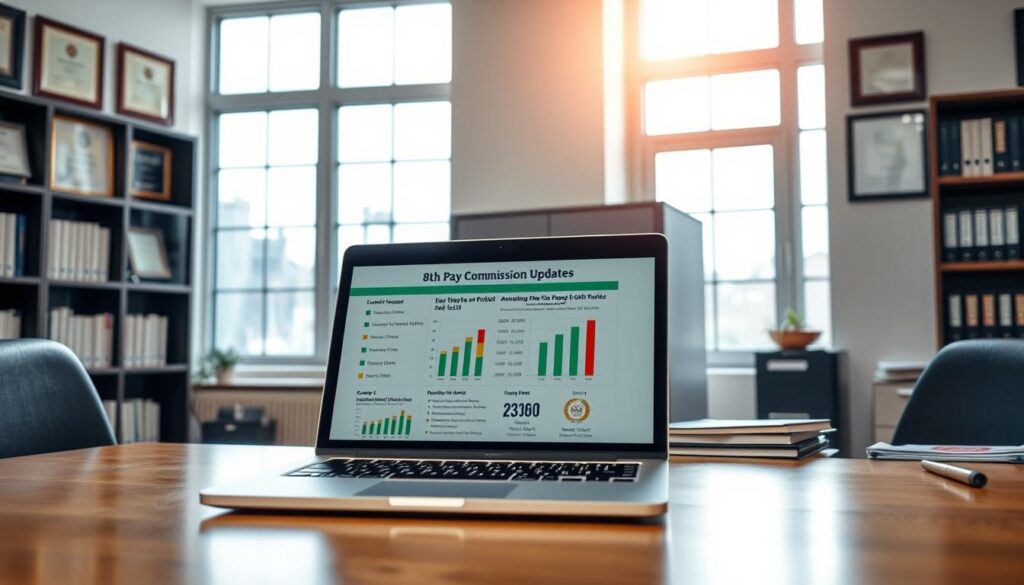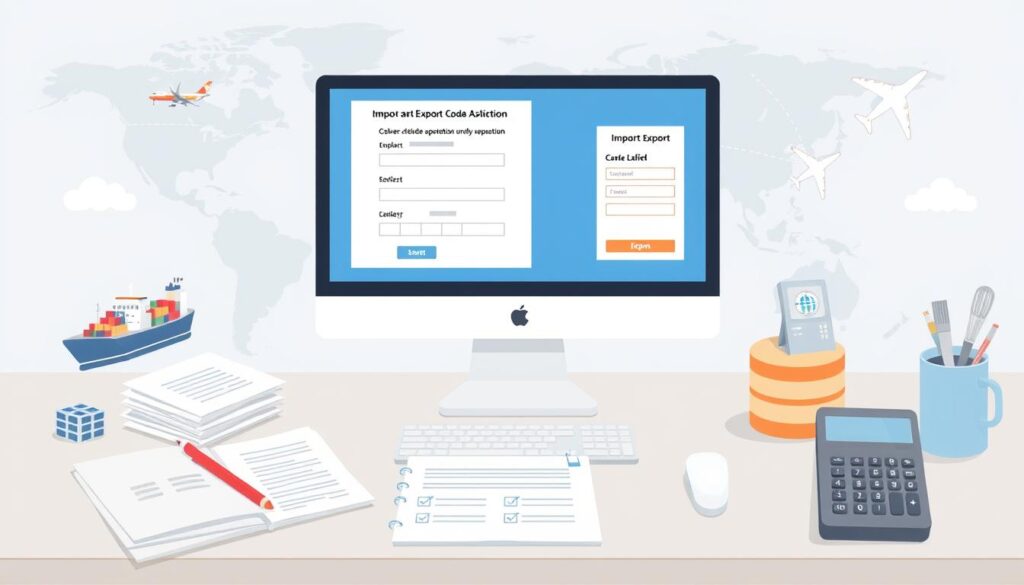Did you know that a credit default can really hurt your CIBIL score? Getting back on track might seem hard, but it’s doable with the right plan. This guide will show you how to improve CIBIL score after default and get your finances back in order.
Understanding CIBIL Score and Defaults
Your CIBIL score is between 300 and 900. It shows how good you are with money. It looks at how you’ve paid back loans and how much debt you have. Scores above 750 mean you handle money well.
What is a CIBIL Score?
A CIBIL score shows how trustworthy you are with money. It’s based on how you’ve paid bills and used credit. The higher your score, the less risk you are.
Impact of Defaults on CIBIL Score
Missing payments can really hurt your CIBIL score. Debts you can’t pay on time stay on your report for 7 years. This lowers your score and makes it hard to get new credit.
It’s key to understand your CIBIL score to manage your money better. Fixing defaults and paying on time helps. This way, you can rebuild credit score after default and improve your financial health.

“A good CIBIL Score ranges between 700 to 900, increasing the chances of getting a higher loan amount at a low-interest rate.”
Assess Your Financial Situation
After facing a credit default, understanding how to improve CIBIL score after default begins with assessing your finances.. Start by making a budget that covers all your income and expenses. This shows you’re serious about managing your money and improving your credit score.
Create a Realistic Budget
To understand how to improve CIBIL score after default, First, list all your income sources, like your job, freelance work, or investments. Then, note down your essential expenses, such as rent, bills, and food. This helps you see where you can save money and put it towards repaying debt to improve cibil.
Prioritize Debt Repayment
With your finances clear, focus on paying off your debts. Start with high-interest loans and credit cards, as they hurt your increase cibil score post default the most. Try to pay as much as you can towards these debts, even if it means spending less elsewhere.
Keep checking and tweaking your budget to meet your credit goals. This shows you’re disciplined with money, which lenders like when you apply for credit again.

“Budgeting is the key to regaining control over your finances and improving your credit score after a default. Commit to this process, and you’ll be well on your way to building a stronger financial future.”
Pay Outstanding Dues
Clearing outstanding dues is key to improving your CIBIL score after a default. If you’ve missed payments or defaulted on a loan, settle these balances first. Talking to lenders can help resolve these issues and get you back on track.
How to Improve CIBIL Score After Default by Negotiating with Lenders
Get in touch with your lenders to discuss settlements or payment plans. They might be open to working with you if you show you’re serious about paying off your debt. This could lead to better terms, like lower interest rates or longer repayment periods, helping you clear your dues and boost your credit report correction for cibil.
You can also contact MY Digital Filing Company for getting help on How to improve CIBIL Score after default. Here you can get free expert consultation to improve your CIBIL Score.
Close Defaulted Loans
Focus on closing defaulted loans as soon as you can. Defaults hurt your steps to boost cibil score a lot. Paying off these accounts shows you’re financially responsible and helps rebuild your creditworthiness.
Timely payments and settling debts are essential steps in how to improve CIBIL score after default. By paying off what you owe, negotiating with lenders, and closing defaulted loans, you’re on the path to credit report correction for CIBIL and a strong financial profile.
| Action | Impact on CIBIL Score |
|---|---|
| Negotiating with lenders for settlements | Positive, as it shows you’re financially responsible and committed to paying off debts |
| Closing defaulted loans | Positive, as it removes the negative effects of defaults from your credit report |
| Consistent on-time payments | Positive, as it improves your payment history and shows lenders you’re committed to responsible borrowing |
Obtain a No Objection Certificate (NOC)
After fixing any defaulted accounts, getting a No Objection Certificate (NOC) from the lender is key. This document proves all debts are paid off. It plays a vital role in updating your credit report, which can significantly help improve your CIBIL score after default.
The loan restructuring for cibil improvement and manage credit utilization for better cibil process involves talking to lenders. After settling debts, they should give you an NOC. This certificate is vital for a correct credit report.
Not getting an NOC can harm you. Without it, lenders might still show the account as delinquent. This could lead to more financial trouble or legal problems. Getting an NOC is a big step towards fixing your credit after a default.
“An NOC is a powerful tool in the process of managing credit utilization for better cibil and restoring your creditworthiness after a default.”
Getting an NOC is a big step towards a better CIBIL score. It helps you get back to good credit options. Remember, it takes time and effort to rebuild your credit and reach your financial goals.
Rebuild Credit with Starter Loans
Getting your credit score back after a loan default is tough. But, there are good ways to do it. Starter loans are a big help. If you’re wondering how to improve CIBIL score after default, starter loans can be a crucial step in the right direction.
Secured Credit Cards
Secured credit cards are great for fixing your credit. You need to put down a deposit, from ₹500 to ₹50,000. This is your credit limit. Pay on time and use less than half of your limit to build a good payment history. This will slowly raise your CIBIL score.
Credit-Builder Loans
Credit-builder loans are made for those with bad or no credit. You get a loan, but the money is kept in an escrow until you pay it back. As you make payments, the lender tells the credit bureaus. This helps you build a good credit history and increases your CIBIL score.
These starter loans offer a clear way to rebuild credit after a loan default. By showing you can handle credit well, you can improve your score. This helps you get back on track financially.
“Consistent, responsible usage of starter loans is key to rebuilding credit after a loan default and establishing a strong financial foundation.”
Make Timely Payments
On-time payments are key to improving your CIBIL score after a default. By paying on time, you show lenders you’re serious about managing your debts. This can greatly increase your credit score over time. To make sure you pay on time, try setting up automatic payments and paying more than the minimum.
Set Up Automatic Payments
Missing or late payments can hurt your credit score a lot. To prevent this, set up automatic payments for your bills and loans. This way, your payments are always on time, without any chance of forgetting.
Pay More Than the Minimum Due
Paying more than the minimum can really help you pay off debt faster. It also improves your credit utilization ratio. This shows lenders you’re serious about handling your managing debt and defaults and can help your credit repair techniques.
Using these methods regularly can help you improve your credit score over time. Remember, fixing your credit takes time and effort. But the benefits are worth it in the long run.
“Consistency is the key to success when it comes to improving your credit score after a default. Stick to your payment plan, and you’ll see the results in due course.”
Maintain Optimum Credit Utilization Ratio (CUR)
Your credit utilization ratio (CUR) is key to your CIBIL score. It shows how much credit you use compared to what’s available. Keeping CUR low helps boost your credit score and makes you more creditworthy.
Keep CUR Below 30%
Experts say to keep CUR under 30% of your total credit limit. This shows lenders you handle credit well. To keep CUR low:
- Check your credit card balances often and pay on time to keep them low.
- Ask your lenders to increase your credit limits. A higher limit can lower your CUR.
- Don’t close unused credit card accounts. This can raise your CUR and hurt your score.
Working to improve your credit utilization ratio helps rebuild your CIBIL score after a default. A low CUR makes your credit score better and shows lenders you’re reliable.
“According to Experian, the ideal credit utilization ratio is under 30%. This means you should keep your balances below 30% of your available credit limit.”
By keeping a good credit utilization ratio, you’re on the right path to improving your CIBIL score and getting lenders to trust you again. Staying on top of your credit will pay off over time.
Monitor Your CIBIL Report Regularly
Keeping a good credit score is key for getting better loan deals and financial chances. One important step is to check your CIBIL report often. CIBIL, or Credit Information Bureau (India) Limited, is India’s main credit checker. Your CIBIL report shows your credit history and activities.
Dispute Inaccuracies and Errors
Checking your CIBIL report often can spot errors that hurt your score. These might include wrong payment records, mistaken debt settlements, or fraud. By quickly fixing these problems with the credit bureau, your report will show your true financial history. This makes your credit profile stronger.
- Thoroughly review your CIBIL report for any discrepancies or errors.
- Gather supporting documentation and submit a dispute to the credit bureau if you find any inaccuracies.
- Follow up on the dispute resolution process to ensure the errors are corrected in a timely manner.
By actively checking your CIBIL report and fixing problems, you manage your finances better. This improves your credit and helps you get better loan terms later.
Avoid Applying for Multiple Loans Simultaneously
Rebuilding your CIBIL score after a default requires careful planning. Applying for many loans or credit cards at once can hurt your score. This is because each application leads to a hard inquiry on your report.
Limit Hard Inquiries on Your Credit Report
Hard inquiries can lower your CIBIL score temporarily. To prevent this, only apply for credit when it’s really needed. Spread out your applications to reduce the impact on your score.
This strategy keeps your credit history stable. It also shows lenders you’re borrowing responsibly.
- Avoid applying for multiple loans or credit cards within a short timeframe.
- Limit hard inquiries on your credit report by only applying for credit when you truly need it.
- Space out your credit applications over time to minimize the impact on your CIBIL score.
Being selective and strategic with your credit applications can boost your credit score post-default. It shows lenders you’re serious about rebuilding your financial health.
Maintain a Healthy Credit Mix
Building a diverse credit portfolio is key to recovering your CIBIL score after a default. Having a mix of secured and unsecured credit shows you can handle different types well. This boosts your creditworthiness.
Revolving credit, like credit cards, and installment credit, such as mortgages, are good for your mix. But, payday loans and buy now, pay later financing aren’t counted.
There’s no exact formula for the perfect credit mix. But, having both revolving and installment credit is usually a good start. Credit mix accounts for 10% of your FICO score, making it crucial for rebuilding your credit.
Keep your credit utilization ratio under 30% as you work on your CIBIL score. Also, avoid too many hard inquiries from credit applications. Regularly check your credit report and fix any errors to help your credit recovery.
“A healthy credit mix can significantly improve your CIBIL score and access to better financing options.”
By balancing your credit portfolio and keeping an eye on your credit health, you can improve your credit score. This will help you reach your financial goals.
How to Improve CIBIL Score After Default
Rebuilding your credit score after a default is tough but doable. It needs patience, discipline, and a commitment to good financial habits. Understanding how to improve CIBIL score after default is crucial; by taking proactive steps, you can slowly improve your creditworthiness. This will help you get credit again.
Be Patient and Consistent
Improving your CIBIL score after a default takes time and effort. It might take 6-8 months of good credit practices to see score improvements. CIBIL tracks defaulters for 7 years, so showing financial responsibility is key during this time.
Adopt Responsible Financial Habits
Good financial habits are essential for rebuilding your credit score after a default. This includes:
- Creating a realistic budget and sticking to it
- Prioritizing debt repayment, starting with the most pressing obligations
- Making timely payments on all your loans and credit cards
- Maintaining a low credit utilization ratio, ideally below 30%
- Regularly monitoring your CIBIL report and disputing any inaccuracies
- Avoiding multiple loan applications or credit inquiries
- Building a diverse credit mix, such as secured credit cards and credit-builder loans
By sticking to these strategies, you can slowly rebuild your credit score. This will help you regain lenders’ trust after a default. Understanding how to improve CIBIL score after default is essential for long-term financial health.
Remember, improving your credit score is a long-term commitment to financial responsibility. With patience and disciplined financial habits, you can overcome a default’s impact. Over time, you can improve your CIBIL score.
What is Considered a Good CIBIL Score?
Your CIBIL score is between 300 and 900. It shows how trustworthy you are with money. Getting your CIBIL score up after a default is key to getting back on track financially.
CIBIL Score Range and Creditworthiness
Experts say a score of 750 or higher is excellent. This means you’re very reliable with money. Scores from 700 to 749 are good. But, anything under 650 can make it hard to get credit because it shows more risk of not paying back.
| CIBIL Score Range | Creditworthiness |
|---|---|
| 750 – 900 | Excellent |
| 700 – 749 | Good |
| 650 – 699 | Fair |
| 600 – 649 | Credit Needs Improvement |
| Below 600 | Immediate Action Needed |
Knowing about CIBIL scores is important. It helps you increase your cibil score post default and repay debt to improve cibil. By aiming for small goals and keeping your credit healthy, you can improve your score. This way, you can get the credit you need.
“A CIBIL score of 750 or above is considered excellent, indicating high creditworthiness.”
Conclusion
Improving your credit report and boosting your CIBIL score after a default is tough but doable. With hard work and consistent effort, you can achieve it. Follow the strategies in this guide, like making payments on time and using credit wisely.
Remember, fixing your credit takes time and effort. It’s a journey that needs patience and a commitment to good financial habits. Fixing errors in your credit report and using credit responsibly are key steps in how to improve your CIBIL score after default.
Stay alert, talk to lenders about settlements, and avoid new credit applications. These steps can help improve your credit profile over time. With determination and a focus on building a good credit history, you can enhance your credit report correction for cibil and steps to boost cibil score. This will open up more financial opportunities for you in the future.










